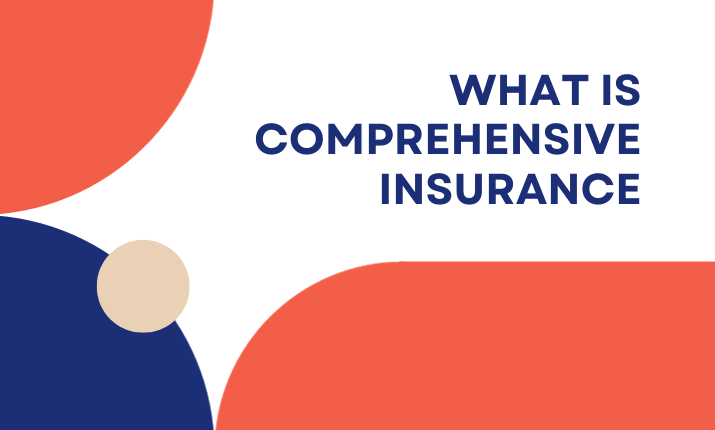Introduction
Comprehensive insurance is key to safeguarding both your vehicle and financial well-being. Here, we’ll explore what comprehensive insurance covers versus what doesn’t and how to select an appropriate policy for yourself.
What Is Comprehensive Insurance Coverage?
Comprehensive auto insurance offers protection for damage that occurs outside of a collision. While collision policies cover only crashes involving other vehicles or objects, comprehensive plans offer greater coverage against incidents that could harm your car.
Comprehensive Insurance Offers
Coverage that Exceeds Basic Plans Damage from Natural Disasters can be extensive.
Comprehensive auto insurance provides coverage against natural disasters like hurricanes, tornadoes, floods, and earthquakes – providing your vehicle with full protection should any unexpected events arise.
Theft and Vandalism
Should your car be stolen or vandalized, comprehensive insurance provides peace of mind by covering repair or replacement costs – especially in high-crime areas.
Animal Damage*
Comprehensive insurance also provides coverage against animal damage, such as collisions between vehicles and wildlife, that can result in considerable vehicle damage.
Falling Objects’ Comprehensive insurance covers your car should it be damaged by falling objects like branches from trees or debris from construction sites, regardless of their source.
Collision Damage
It’s essential to remember that comprehensive insurance does not protect in the event of a collision with another vehicle or object; for this, collision insurance must be purchased separately.
Comprehensive insurance primarily addresses property damage; it does not cover medical costs for injuries sustained during an accident.
Motorist Coverage Solutions for Uninsured Vehicles
Comprehensive insurance does not cover accidents involving uninsured or underinsured drivers.
Benefits of Comprehensive Coverage Insurance
Financial Security
Comprehensive insurance can provide invaluable financial protection, covering repair or replacement costs in various scenarios.
Peace of Mind
Ensuring your vehicle is protected against many potential risks is a source of immense peace of mind, enabling you to drive completely calmly, whether the threat comes from natural disasters or theft.
How to Select Comprehensive Insurance
Assess Your Needs
Consider factors like your location, driving habits, and vehicle value when assessing the level of coverage needed for your car. This can help determine the appropriate policy amount.
Comparing Policies
Each insurance provider offers different levels and costs of coverage and premiums. To find one that best meets your needs and budget, it’s crucial to carefully compare policies from other providers before selecting one that satisfies them both.
Deliberating Over Deductibles
Selecting the proper deductible amount is critical in choosing an affordable premium plan. A higher deductible could lower your premiums, but be sure it’s an amount you can cover comfortably should a claim arise.
Cost Factors to Keep in Mind
Vehicle Type
Your choice of car will affect your comprehensive insurance premium; luxury models tend to attract higher premiums.
Location
Location matters when setting premiums; areas prone to natural disasters or high crime often incur higher insurance costs.
Driving History
Driving History A clean driving record can contribute to lower insurance premiums by showing that drivers demonstrate safer habits that present lower risks to insurers.
Making a Comprehensive Insurance Claim
Documenting an Incident
After any incident of damage occurs, it must be fully documented. Take photos, collect witness statements, and notify local authorities as necessary.
Contacting Your Insurance Provider
Notify your insurance provider immediately following an incident to expedite the claims process and receive instructions on what steps should be taken next.
Follow your insurer’s instructions closely and provide all needed paperwork. Claims processes vary depending on the nature and extent of an incident, so take your insurer’s instructions seriously when filing a claim.
Tips to Lower Comprehensive Insurance Premiums
Consider Raising Deductibles
Raising your deductible could result in lower premiums; make sure that it’s an amount you can comfortably cover should a claim arise.
Implementing Security Features
Enhancing the security of your vehicle with features such as alarms and tracking devices can lower theft risks, potentially lowering insurance premiums.
Maintain a Clean Driving Record
Safe driving habits help protect you and others while potentially leading to reduced insurance premiums.
Comprehensive insurance is essential to protecting both your vehicle and financial well-being. By understanding its coverage, how to select an appropriate policy, and the factors influencing premiums, you can make more informed decisions for peace of mind.
FAQs
How is Comprehensive and Collision Insurance Differ?
Does Comprehensive Cover Rental Cars?
Can Comprehensive Be Added to an Older Vehicle?
Does Law require Comprehensive?
How Will Deductible Affect My Premium Payment?

